Listen on Spotify | Watch on YouTube
Unlocking High-Quality Sleep with Functional Mushrooms
In this episode Dr. Desiree Caruso, ND, and co-host Brandi Garden take a deep dive into the science of sleep and explore how functional mushrooms can support restorative rest. Sleep is the cornerstone of good health, yet millions struggle with falling asleep, staying asleep, and waking up refreshed. We uncover a ten-step optimal sleep routine and discuss research-backed functional mushrooms that can help you achieve better sleep naturally.
Take our QUIZ to find your mushroom match!
Why Sleep is Essential
Sleep isn’t just a passive state—it’s a vital process that affects every system in the body. Poor sleep has been linked to cardiovascular disease, mood disorders, weakened immunity, and even shortened life expectancy. Research shows that staying awake for over 24 hours impairs cognitive function as much as having a 0.08% blood alcohol level—essentially, the equivalent of being legally drunk!
A good night’s sleep helps your body recover, strengthens memory, regulates emotions, and boosts overall well-being. But how does sleep actually work?
The Science of Sleep Cycles
Throughout the night, your body cycles through four key sleep stages:
Stage 1 (NREM 1: Light Sleep) – A brief transition into sleep, where your body relaxes, and your brain waves begin to slow.
Stage 2 (NREM 2: Deeper Relaxation) – Body temperature drops, heart rate slows, and the brain experiences bursts of activity that support memory consolidation.
Stage 3 (NREM 3: Deep Sleep) – The most restorative stage, where tissue growth, immune function, and cell repair take place.
Stage 4 (REM Sleep: Dreaming Stage) – A crucial phase for emotional regulation, learning, and creativity, where the brain is highly active but the body remains still.
Disruptions to these sleep stages can leave you feeling groggy and fatigued, even after a full night’s rest. So, how can we optimize our sleep cycles?
10 Steps to an Optimal Sleep Routine
- Make Sleep a Priority – Shift your mindset to treat sleep as a non-negotiable part of your health routine.
- Set a Consistent Bedtime – Aligning with your natural circadian rhythm improves sleep efficiency.
- Create a Wind-Down Routine – Engage in relaxing activities like reading or sipping herbal tea before bed.
- Practice Mindfulness or Deep Breathing – Calming the nervous system helps ease the transition into sleep.
- Listen to Soothing Music – Studies show classical music can enhance sleep quality.
- Get Morning Sunlight – Early exposure to natural light regulates melatonin production.
- Limit Evening Light Exposure – Reduce blue light from screens to prevent melatonin suppression.
- Regulate Bedroom Temperature – A cooler environment promotes deeper sleep.
- Avoid Stimulants and Late-Night Meals – Caffeine, alcohol, and heavy foods can disrupt sleep cycles.
- Track Your Sleep Patterns – Using a sleep journal or tracker can help you identify trends and optimize your rest.
Functional Mushrooms for Sleep Support
Mushrooms have been used in traditional medicine for centuries, and modern science is now validating their benefits for sleep. Here’s how some of the most well-researched functional mushrooms can help:
Reishi: The Ultimate Sleep Supporter
Known as the “Mushroom of Immortality,” Reishi has adaptogenic properties that promote relaxation and enhance sleep quality.
- Study Insight - Research published in the Journal of Ethnopharmacology found that Reishi extract reduced sleep latency (the time it takes to fall asleep) and increased total sleep time.
- How It Works - Reishi interacts with the GABAergic system, which is responsible for calming neural activity, similar to how benzodiazepines work—but without the risk of dependence.
- Additional Benefits - Reishi also supports gut health, which is closely linked to sleep quality through the gut-brain axis.
Lion’s Mane: Brain Support for REM Sleep
While primarily known for cognitive enhancement, Lion’s Mane also supports sleep by encouraging neurogenesis (the growth of new brain cells).
- Study Insight - A 2020 study in Frontiers in Neuroscience found that Lion’s Mane improved REM sleep duration in participants with mild cognitive impairment.
- How It Works - By promoting neural repair and reducing inflammation, Lion’s Mane helps optimize sleep cycles.
Cordyceps: Stress Regulation for Better Sleep
Cordyceps is often associated with energy, but it also plays a key role in balancing the body’s stress response.
- Study Insight - A 2019 study in Biomedicine & Pharmacotherapy found that Cordyceps helped regulate cortisol levels, leading to deeper, more efficient sleep cycles.
- How It Works - By supporting adrenal function, Cordyceps helps the body manage stress, which can prevent restlessness and night waking.
Chaga: Antioxidant Power for Restorative Sleep
Chaga doesn’t directly induce sleep, but its powerful antioxidant properties help combat oxidative stress—a common cause of poor sleep quality.
- Study Insight - Research in Antioxidants (2021) found that Chaga supplementation improved sleep quality by reducing inflammation markers.
- How It Works - By lowering inflammation, Chaga promotes an optimal environment for deep, restorative sleep.
Combining Mushrooms with Other Sleep Aids
Many people wonder if they can take functional mushrooms alongside other sleep-supportive nutrients like magnesium or melatonin. The answer? Absolutely!
- Reishi + Magnesium - A perfect pairing for muscle relaxation and nervous system support.
- Cordyceps + Adaptogens - Helps balance stress hormones for a smoother transition into sleep.
- Melatonin Caution - While melatonin can be helpful in the short term, long-term use may interfere with the body’s natural production. Functional mushrooms offer a sustainable, long-term solution for sleep health.
Final Thoughts
Prioritizing sleep is one of the most impactful things you can do for your health, and functional mushrooms offer a natural, effective way to enhance sleep quality. Whether you’re struggling with insomnia, stress-related sleep disruptions, or simply looking to optimize your rest, incorporating mushrooms like Reishi, Lion’s Mane, Cordyceps, and Chaga into your routine can make a significant difference.
For more science-backed wellness insights, be sure to check out The Eversio Experience podcast, Episode 16. Sweet dreams and happy healing!
Resources for Better Sleep:
- Sleep Foundation (www.sleepfoundation.org) – Science-backed tips on sleep disorders and solutions.
- HeartMath Institute (www.heartmath.org) – Research on heart coherence and sleep.
- Huberman Lab Podcast – Expert insights on sleep optimization and circadian rhythms.
- Nothing Much Happens Podcast – Relaxing bedtime stories for better sleep.
Have you tried functional mushrooms for sleep? Share your experiences with us in the comments!


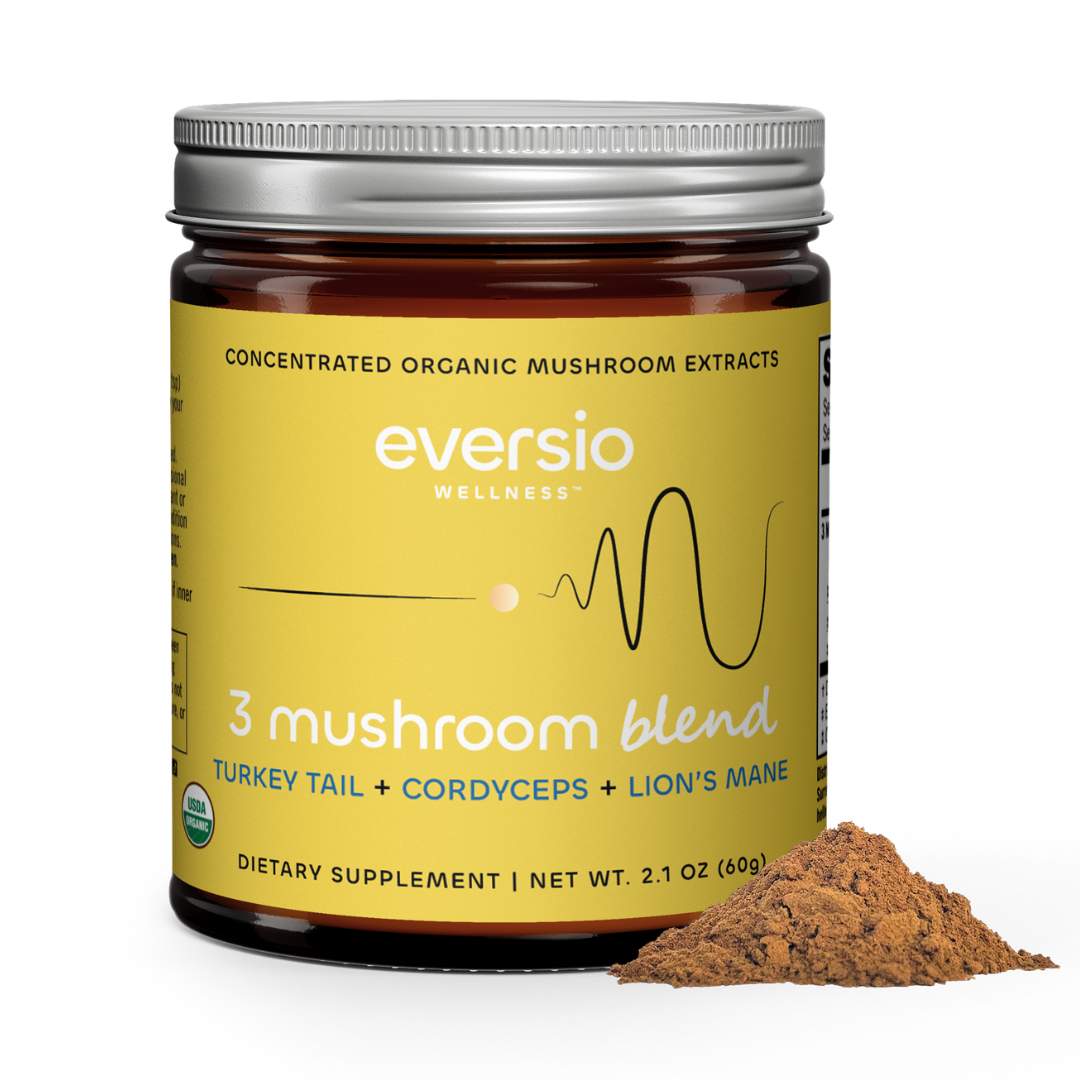


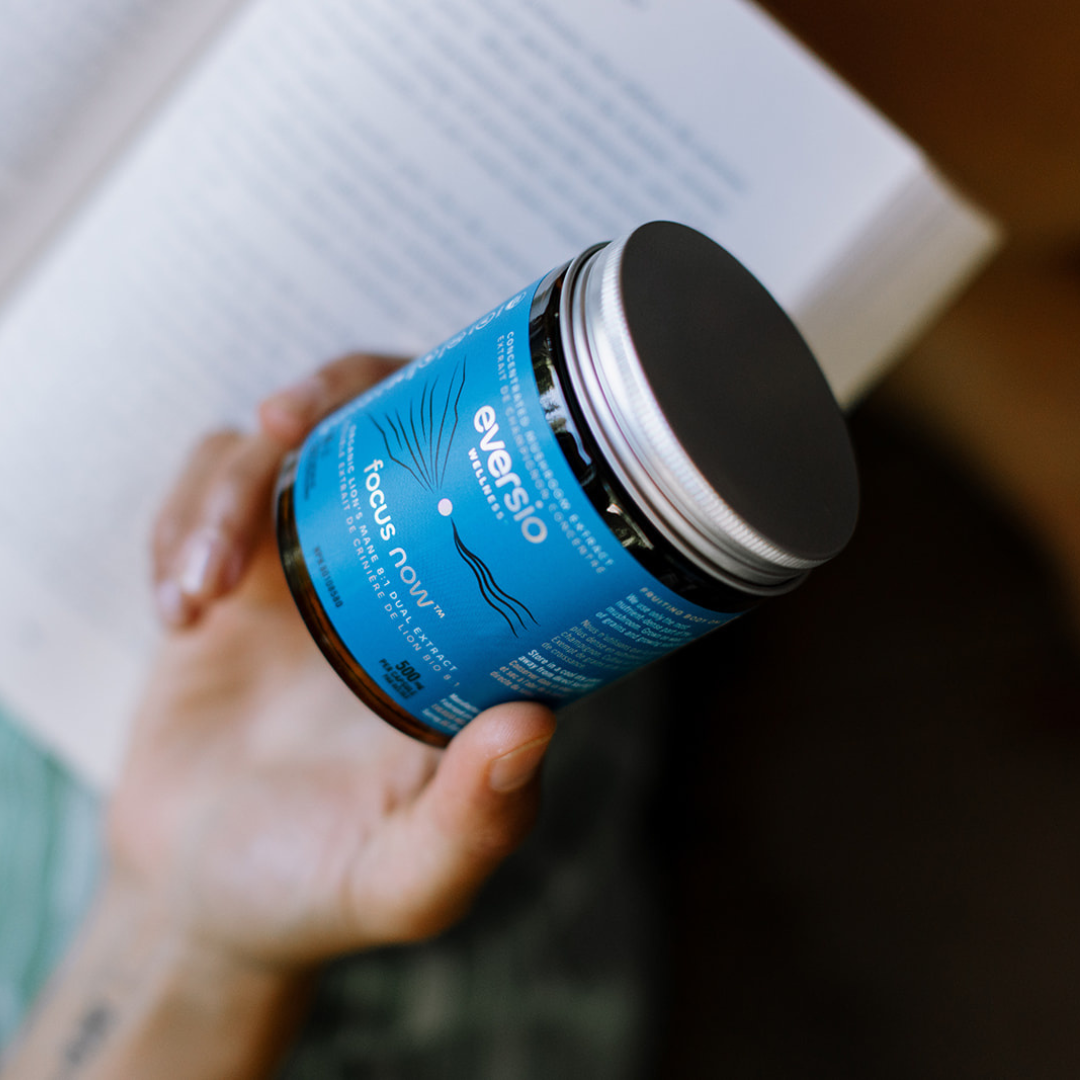
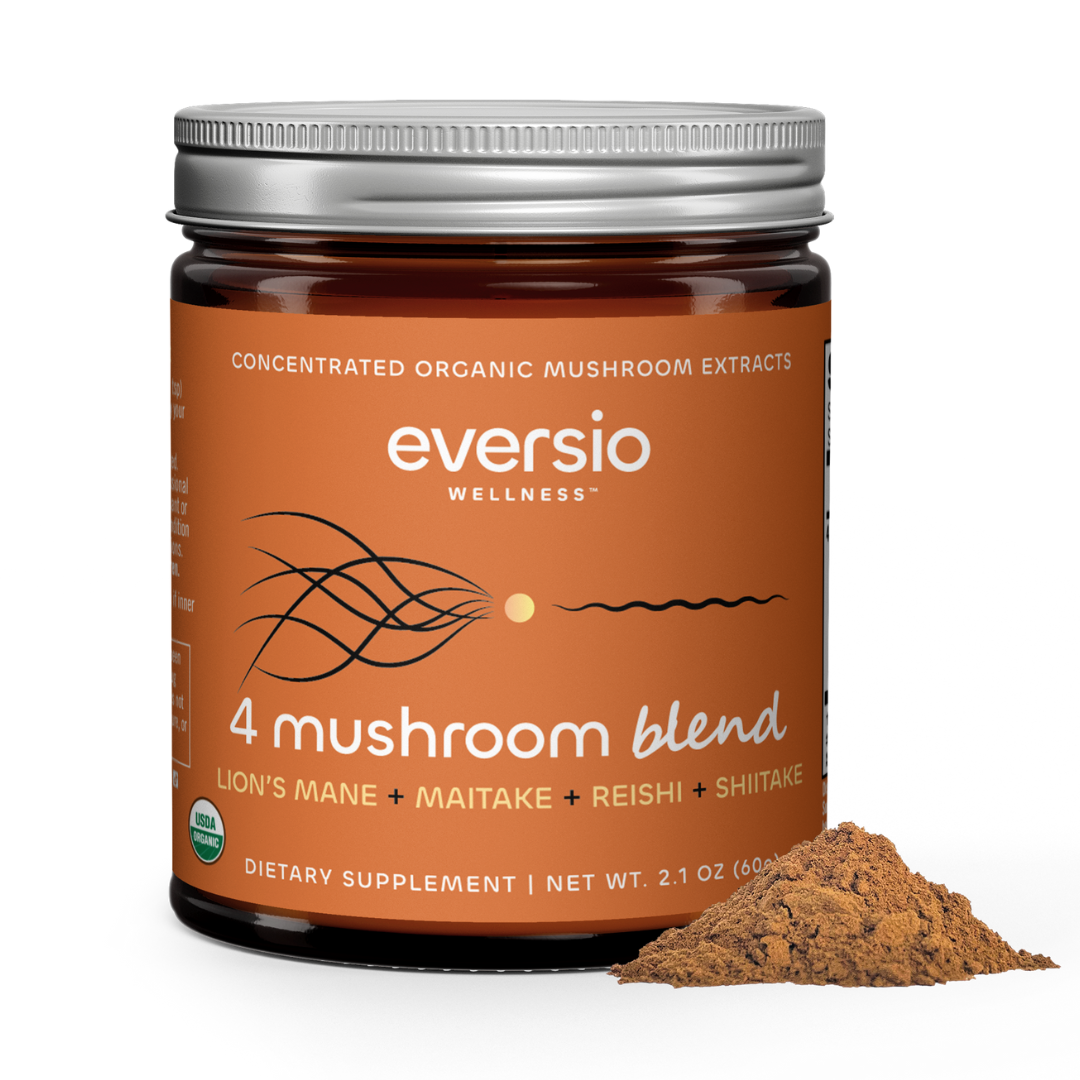


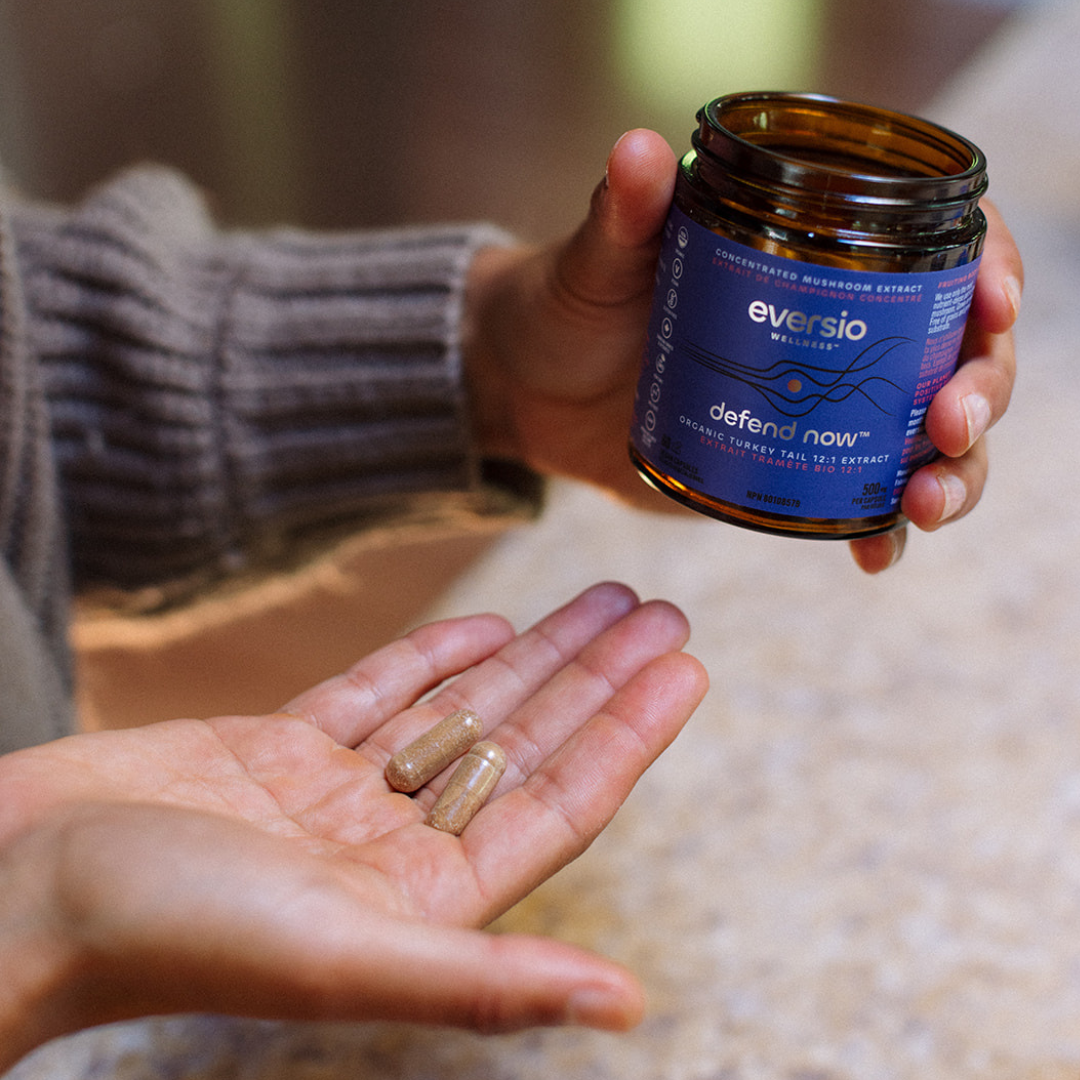
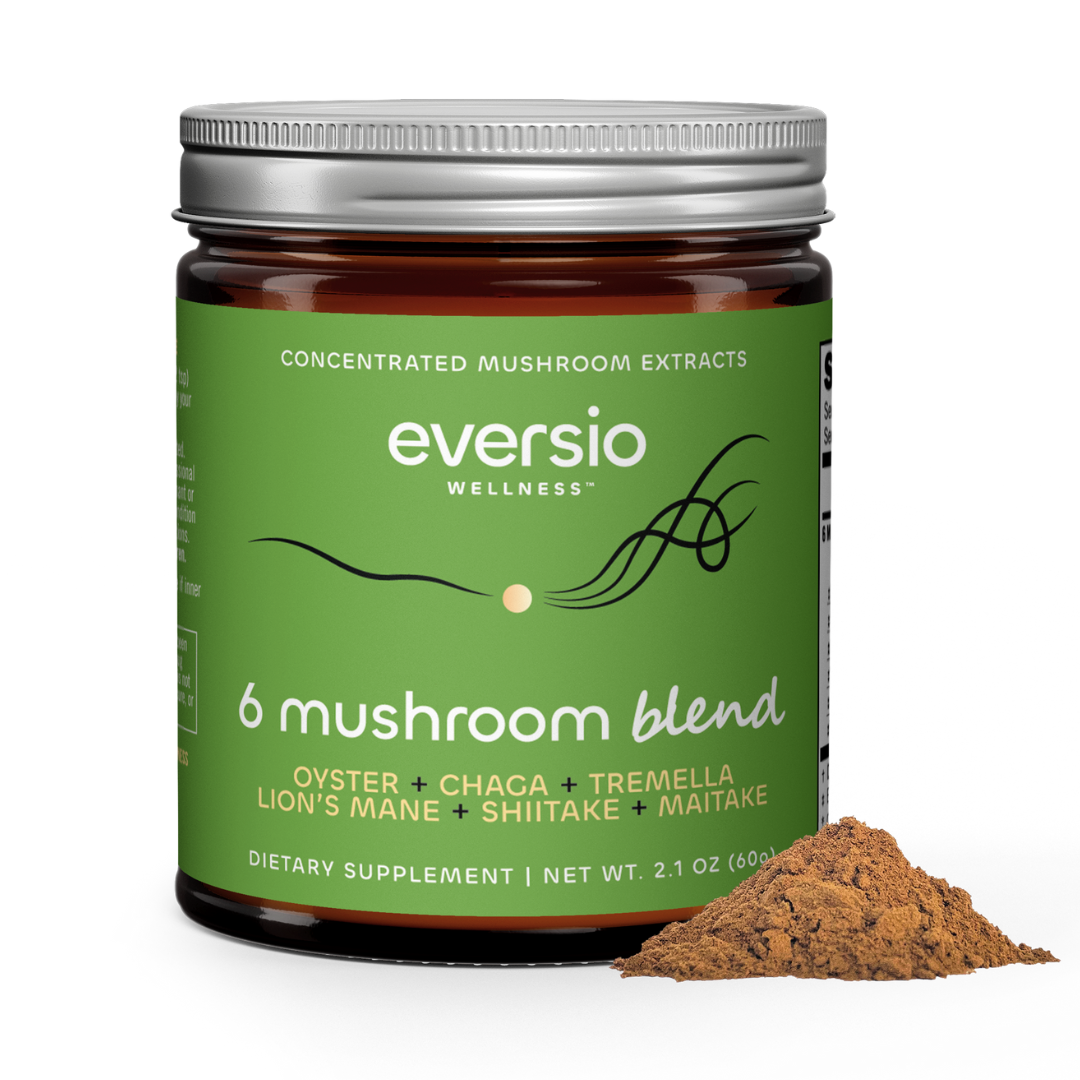
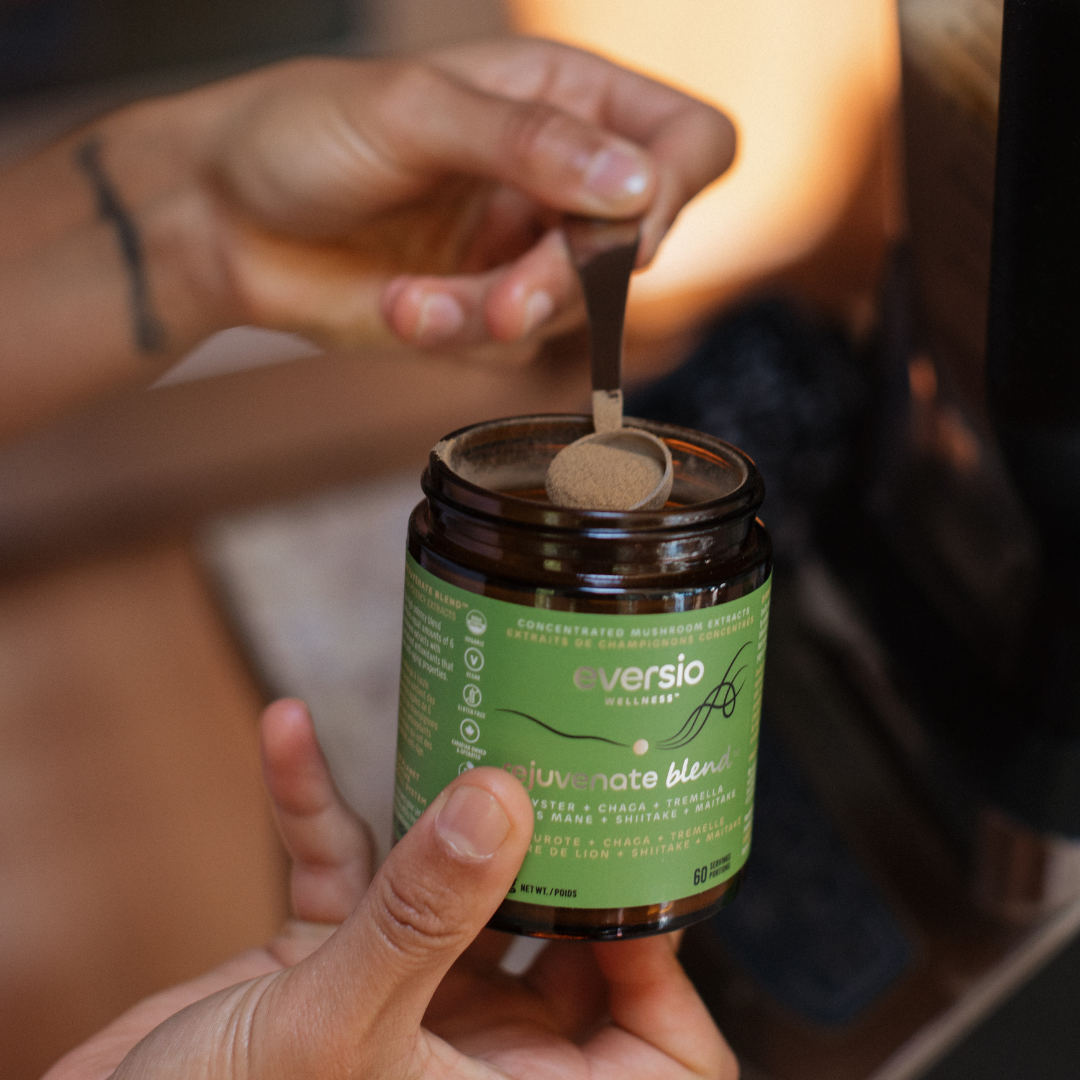








Leave a comment
All comments are moderated before being published.
This site is protected by hCaptcha and the hCaptcha Privacy Policy and Terms of Service apply.